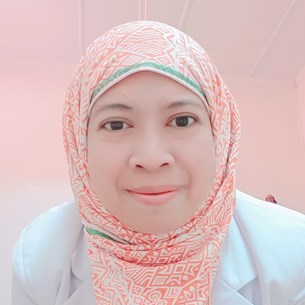Meeting
2023 ASCO Breakthrough

Division Oncology, Head and Neck Surgery Departement Surgery Hasan Sadikin General Hospital, Bandung, Indonesia
Yohana Azhar , Freda Halim , Ricarhdo Valentino Hanafi
Background: Breast cancer (BC) is the most diagnosed cancer in Indonesia, according to the World Health Organization in 2020. Economic centralization in Java Island worsens the accessibility and inequality of healthcare facilities. The limited standard BC screening, such as mammography and ultrasound, generates breast self-examination (BSE) as the practical and effortless method to detect the earliest sign of breast cancer. Early detection and prompt management of BC improve survival rate and quality of life. Hence, we aimed to synthesize the pooled prevalence data, identify the determinants, and compare BSE practice between Java Island and non-Java Islands in Indonesia. Methods: This study followed the Preferred Reporting Items for Systematic Review and Meta-Analysis (PRISMA). We conducted intensive searches in Cochrane Library, PubMed, Google Scholar, and SINTA (Science and Technology Index) - Indonesian web-based research information from September 2017 – 2022. For a critical appraisal of the studies, we employed the Joanna Briggs Institute (JBI) critical appraisal checklist for studies reporting prevalence data. We utilized Review Manager 5.4 for conducting the meta-analysis. The pooled analysis was reported as a prevalence and odds ratio (OR) with a 95% confidence interval (CI).Results: Total samples (n = 6,361) from 41 full-text publications were included. The overall national prevalence of BSE practice was 43.14% [95% CI: 36.08, 50.20, P <0.001, I2 = 100%]. BSE practice in Java Island was 44.58% [95% CI: 35.42, 53.75] and significantly higher than that of Non-Java Island at 41.62% [95% CI: 29.83, 53.41]. University students reported the highest prevalence of BSE practice with 49.90 [95% CI: 40.27, 59.33]. Good knowledge, good attitude toward BSE, family history of BC, family support, and BC information exposure were all statistically associated with a higher determinant of BSE practice among women in Indonesia. Conclusions: Only less than 50% of fertile women in Indonesia practiced BSE, with the lowest percentage on non-Java Islands and community-group. Integrative and collaborative programs should be established with the government, health policymakers, and community health groups to promote BSE as routine screening for breast cancer.
Disclaimer
This material on this page is ©2024 American Society of Clinical Oncology, all rights reserved. Licensing available upon request. For more information, please contact licensing@asco.org
2023 ASCO Breakthrough
Poster Session
Poster Session A
Breast Cancer,Central Nervous System Tumors,Developmental Therapeutics,Genitourinary Cancer,Hematologic Malignancies,Thoracic Cancers,Other Malignancies or Topics
Early Detection and Surveillance
JCO Global Oncology 9, 2023 (suppl 1; abstr 4)
10.1200/GO.2023.9.Supplement_1.4
4
A8
Abstract Disclosures
2023 ASCO Annual Meeting
First Author: Robert A. Smith
2023 ASCO Annual Meeting
First Author: Ana Carolina Carolina Marin Comini
2023 ASCO Annual Meeting
First Author: Leonardo Ribeiro Soares
2023 ASCO Annual Meeting
First Author: Laith Theeb